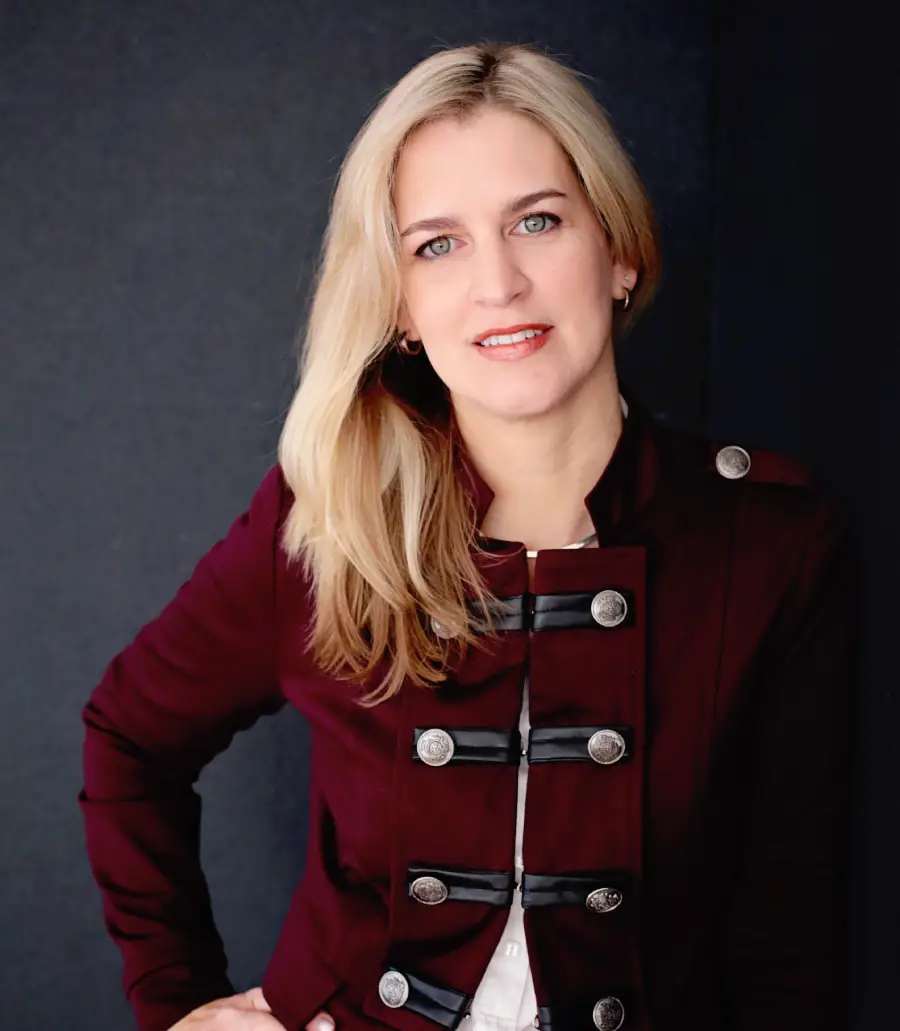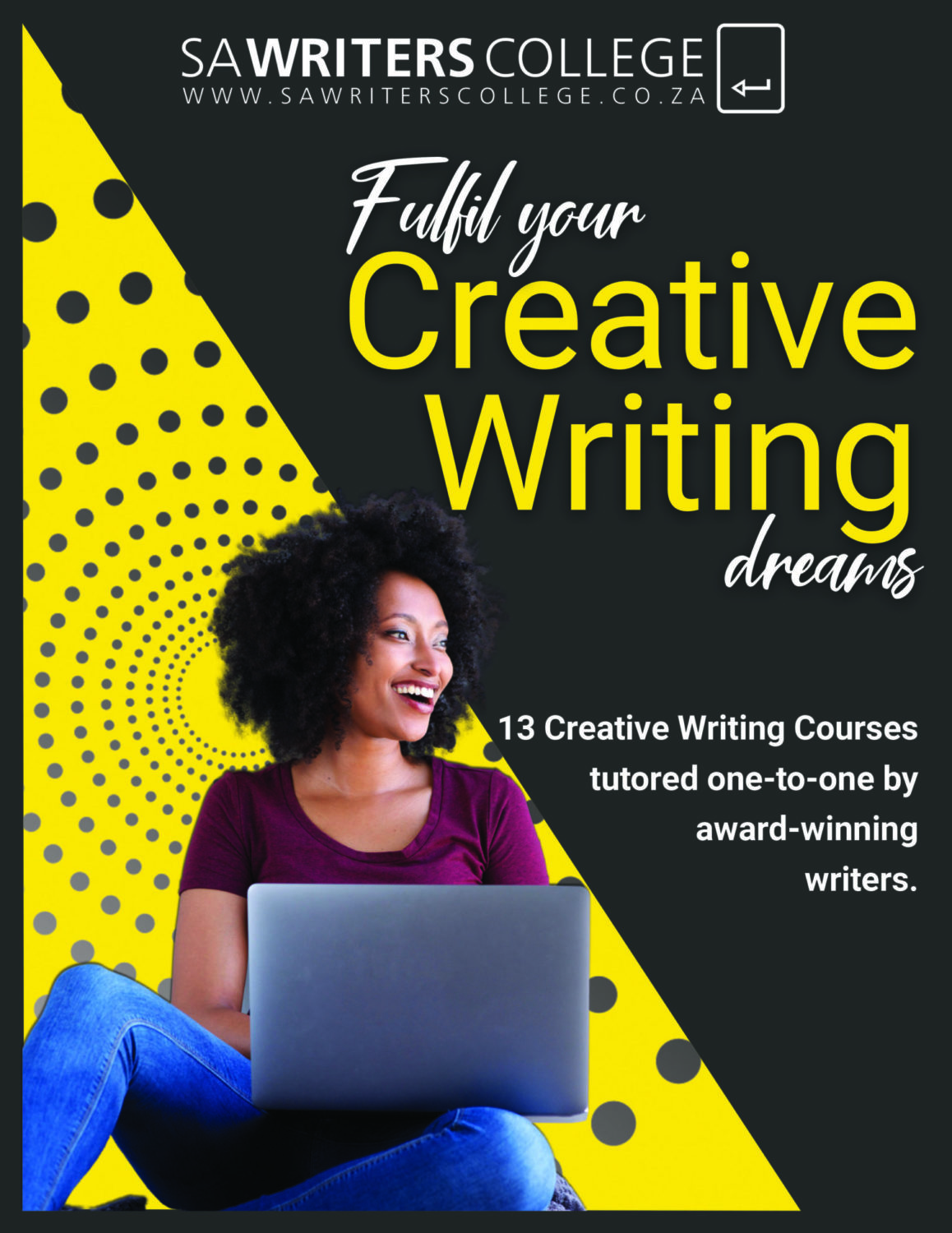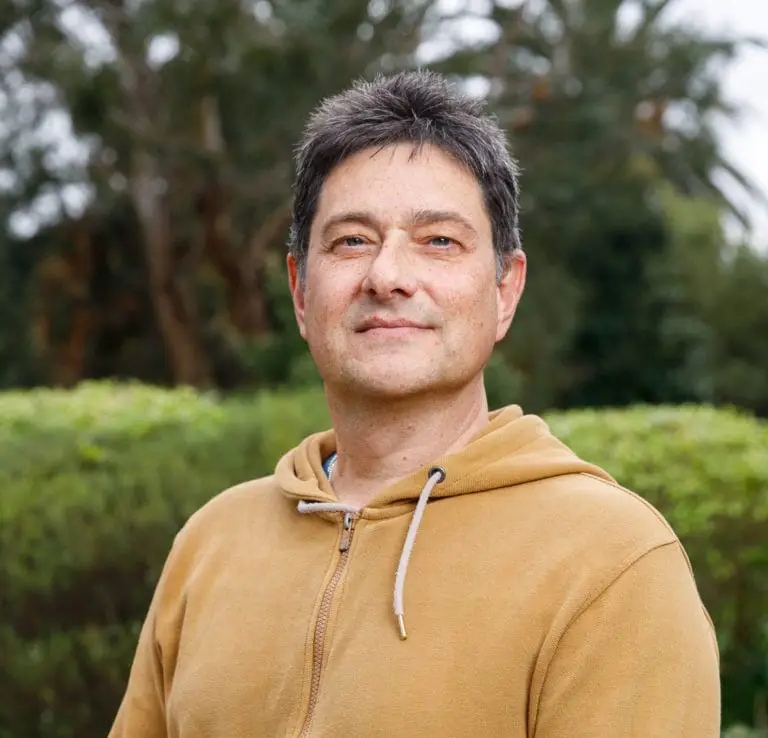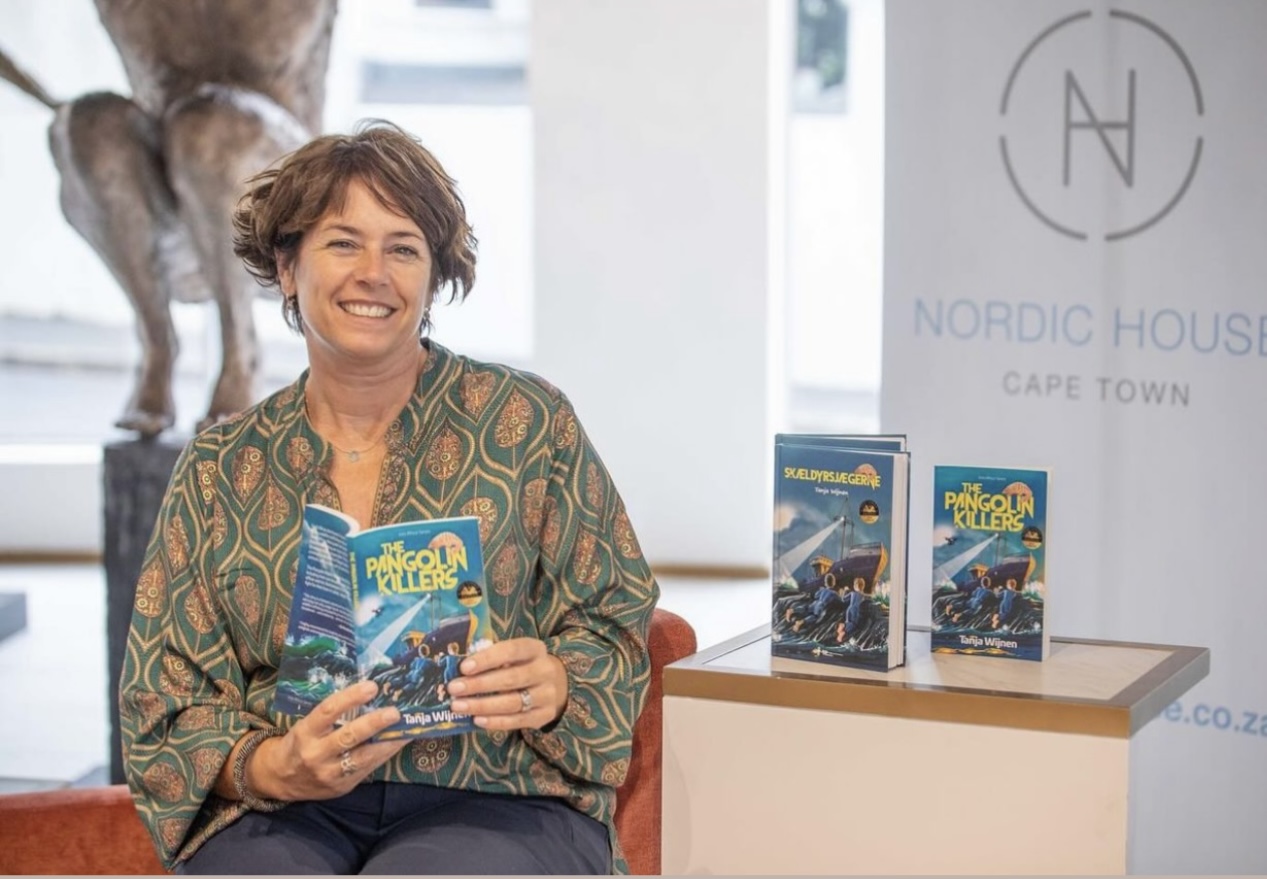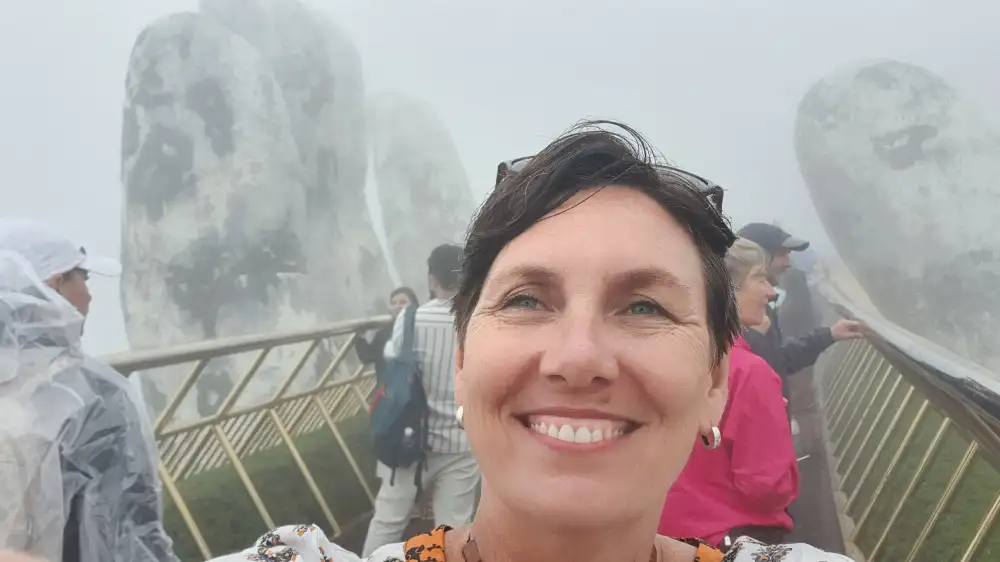Lydia Stander, a recent graduate of the Advanced Scriptwriting Course at SA Writers College, is fast establishing herself as a storyteller to watch. With a finalist placement in the Writers Guild of South Africa (WGSA) Muse Awards, and a possible short film production on the horizon, her trajectory in the field of scriptwriting is truly inspiring.
SAM NARRAZID was thrilled to chat with Lydia about her experiences, successes and the inner workings of her creative talent. These are some highlights from their conversation.
Could you share the story behind your venture into scriptwriting and the specific moment that ignited your passion for this field?
I’m a self-confessed logophile! I’m fascinated by words and their meanings – the way you can play with them. I’ve been an amateur scriptwriter for more than a decade, but I never thought of doing anything with it, mainly because I was focused on work and raising children.
In 2020, during the Covid lockdown, I was moved to try and help those in the film industry who were suddenly without work. I began an online streaming platform where local filmmakers could freely upload their short films and earn revenue from views. This venture put me in touch with so many creatives whose work inspired me.
I wanted to get a better understanding of film and film production, so I decided to study at the Open Window Institute. Studying allowed me to explore my creativity and gave me the space to concentrate on writing and developing stories. I rediscovered my passion for writing and found a new passion for making films.
How has the Advanced Scriptwriting Course, with Karen Jeynes as your tutor, contributed to your growth as a writer? Were there any particular challenges that the course helped you overcome?
I started the course with a vague idea for a story – it was more about a concept and the world the characters lived in. Karen pushed me to uncover whose story I was telling and asked me all the questions I needed to ask myself to complete the work. She was very insightful and encouraging; she helped me see things I would never have realised on my own.
The course really helped me understand what’s required to present a professional pitch. I submitted the pitch and screenplay to the Showmax/JFF First-Time Director competition and have been notified that I’m on the shortlist! Hold thumbs for me!
Your achievement as a WGSA Muse Awards finalist is commendable. Can you tell us about the project you submitted and its personal significance to you? Also, how did you feel upon learning about this recognition?
Getting this far is more than I could have hoped for, and it’s such an honour to get this kind of encouragement from the Writers Guild. I know that writing as an art form is subjective, but recognition on this level makes me feel like I may actually have some talent.
The project I submitted to the Muse Awards is titled Tottermot, and it’s a dark comedy set in a Pretoria suburb – they say you should write about what you know! The story is based on life in an upmarket housing estate. I always imagine all the things that could happen in those communities.
I’d been playing with the idea, and then I heard a news report on the radio that inspired the rest of the script. I think there is a bit of me in the protagonist; she’s a bit unorthodox and often misunderstood. She’s perceived as a stereotypical woman based on how she looks, although she’s anything but.
Your short film’s acceptance by kykNET for the Silwerskermfees (SSF) is a remarkable milestone. What insights can you share into the film’s storyline and the creative process that led to its selection for production?
The concept is something that popped into my head last year when I was at a day spa with my daughter. I wrote the screenplay that afternoon while it was still fresh in my mind. I hadn’t initially thought of entering the SSF competition, as I was concerned that my Afrikaans wouldn’t be strong enough. I pitched a few ideas, and they chose Liewe Dudu! It’s a comedy, and I think it was selected because it’s a bit different, with a captivating lead character I adore for her positive energy and confidence.
Are there any personal experiences that have influenced your writing style? What particular themes or genres are you passionate about when it comes to scriptwriting?
I’m not sure I have a particular writing style, and I don’t have a favourite theme or even genre. Comedy comes naturally, but the screenplay I wrote under Karen’s tutelage is a period drama. I’m also busy with a supernatural/fantasy script that I began about ten years ago. I’m always writing stories in my head, and some of them end up on a page. I usually have three or four concepts developing simultaneously, which I add to whenever I think of something that will fit.
I enjoy doing research, and with my background in marketing, putting together a pitch is right up my alley. I’ve always loved writing – I think I’m better suited to screenwriting because I visualise every scene as I write. Having studied film production, I consider the execution. I think in terms of limiting characters and locations, which impact production time and budget.
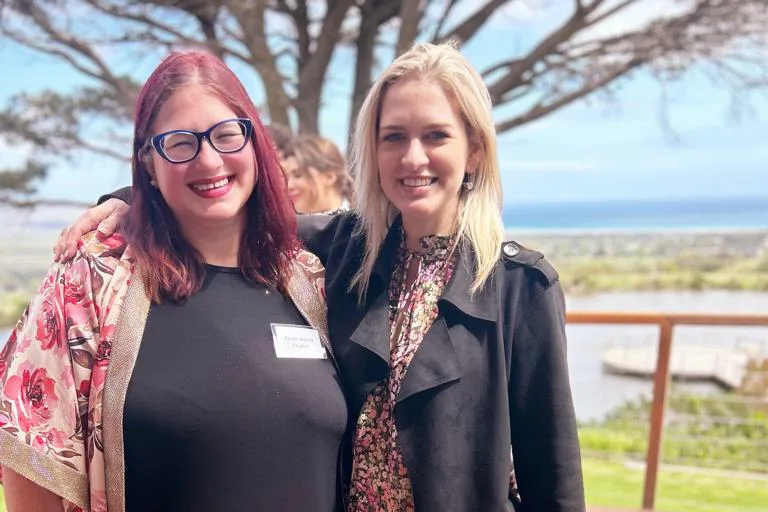
What advice would you give to aspiring scriptwriters who are just starting their journey in the world of screenwriting?
Like anything creative, it’s got to come from inside you. All art is an expression of a passion that simply must burst out. Also, writing can be lonely work, and it takes discipline to plant yourself at your desk.
Screenwriting isn’t the same as writing a novel – there are formats and models to follow for different genres, as well as other aspects you must cover to create a successful story that holds interest and satisfies the viewer.
I’ve learned it’s important to plan before you start. What are the themes? Where is the story going? You need to know the ending before you begin. You may be expected to prepare a beat sheet before you work on your script – learn what that is and how to use it.
Make sure you understand the characters – what their values are, what they need and want, and what they must do to achieve their goals. This will guide you. Once you’re into the story, the characters start talking to you, and you’ll need to go back to your initial sketches to define them further. Character arcs are used to outline growth, and you’ll need to consider internal and external conflict and the obstacles that get in the way of the protagonist’s journey.
Learn as much as you can about your craft. There are many informative websites that provide information on all aspects of screenwriting: No Film School and StudioBinder are good sources.
Looking ahead, what are your goals and aspirations in the field of scriptwriting? Is there a dream project you’re eager to work on?
I’m not someone who plans too far ahead – I go wherever I see an adventure waiting. I’m also somewhat impulsive and constantly hop between pursuits. I currently have a couple of projects on the go. With regards to scriptwriting, I love it, and it’s easy to do wherever I am. So, I think that’s here to stay. I have about two dozen stories in various stages of development that I probably need to finish at some point; I’d like to see some of them come to life. Conceptualising and producing music videos is probably my ultimate dream.
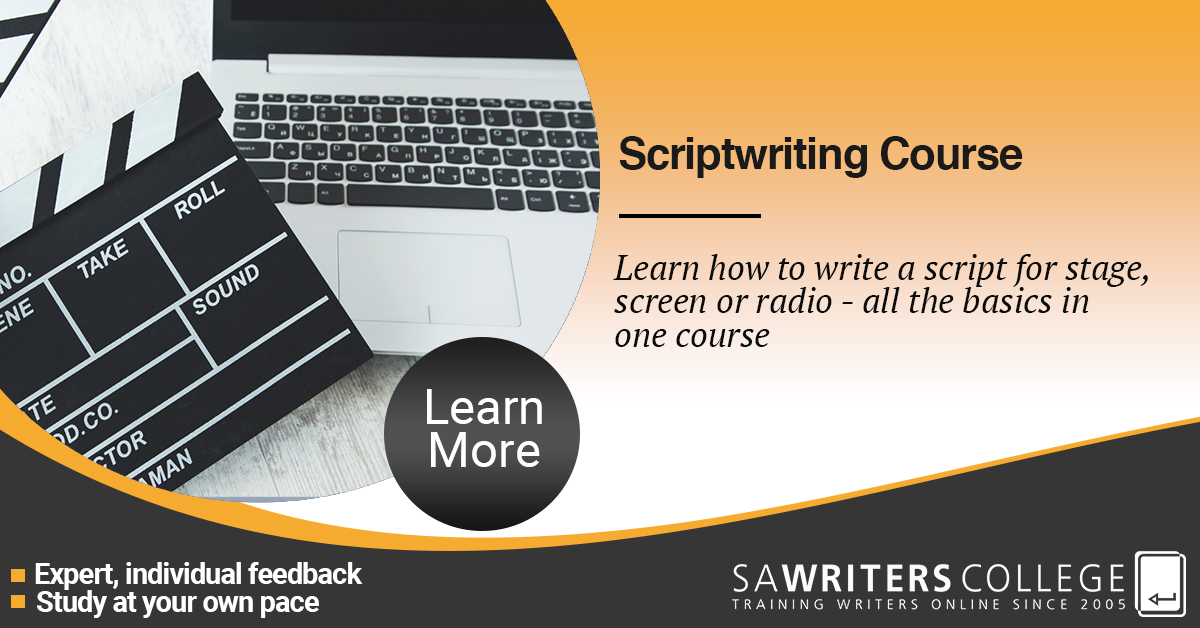
About Lydia
Lydia Stander’s journey into the world of film is proof enough that it’s never too late to chase your dreams. She discovered her passion for film-making in the latter part of her life, and this new-found path has become the defining chapter of her ‘second half.’
Lydia’s debut student film, Sexed, is a shining example of her talent and dedication. It not only captured hearts but also garnered significant recognition, winning three Sapling Awards and a Pangolin Award for Best Certificate Film at Open Window. Sexed also transcended borders, earning nominations in ten international film festivals and clinching three prestigious international awards in the same year.
While Lydia may be relatively new to the film industry, her commitment to learning is unwavering. She serves as an inspiration to her peers and to anyone who has ever wanted to take a leap into the unknown. Her message: ‘When they reach 50 and maybe feel like they are stuck, old or tired, I hope they remember me and feel inspired to take a chance on a new adventure!’
For more insights into Lydia’s journey and a glimpse into her creative world, you can connect with her on Instagram: @LydiaWithAWhy.

